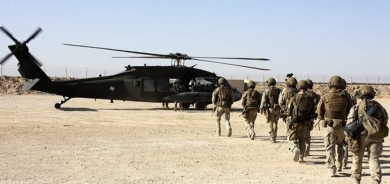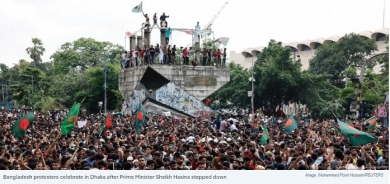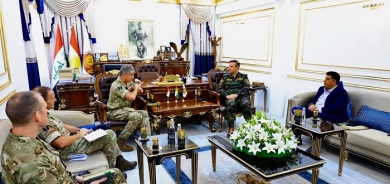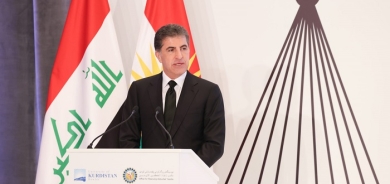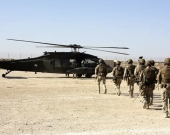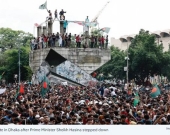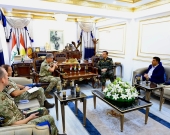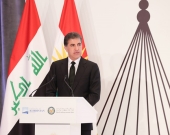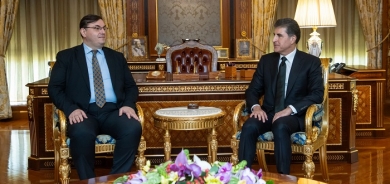Can Libyans agree on a plan to give peace a chance?

Hours after UN special envoy Bernadino Leon told reporters in the Moroccan coastal city of Skhirat that Libya’s warring factions had reacted positively to a draft peace agreement, reports of yet another snag – this time for the eastern Libyan city of Tobruk – began to emerge.
Leon was speaking to reporters after unveiling a 69-article plan late Monday to form a transitional unity government aimed at ending the current stalemate in the oil-rich North African nation that is home to two rival governments – one based in the capital of Tripoli and the other in Tobruk – and several armed groups, including jihadists linked to al Qaeda and the Islamic State (IS) group.
"We have distributed, as you will have seen, a new proposed agreement. All I can tell you for now is that the reaction is positive," said Leon.
The UN special envoy has been pushing for a final accord before the start of the Muslim holy month of Ramadan on June 17. Libyan delegates were scheduled to travel to Germany for meetings with a number of EU foreign ministers and North African leaders.
But hours later, a lawmaker based in Tobruk said the elected and internationally recognized parliament in the eastern Libyan city had rejected the UN draft proposal.
Speaking to Reuters by telephone from Tobruk, Tareq al-Jouroushi said the eastern parliament had banned delegates from travelling to Germany to discuss the latest peace proposal.
The latest hurdle came as IS militants seized a strategic power plant in the western city of Sirte, according to the jihadist group and Libyan military sources. Forces loyal to the self-declared government that controls Tripoli pulled out of the area after IS fighters attacked the plant, according to Libyan military sources.
The fall of Sirte – former Libyan leader Muammar Gaddafi’s hometown – underscored the calamitous security situation in a country located just a boat ride away from Europe, with the IS group (also known as ISIS or ISIL) making advances across the country.
Meanwhile, the snags in peace negotiations have highlighted the challenges confronting the international community in helping secure Libya four years after Gaddafi’s ouster.
Red lines and fundamental differences
The latest peace plan is the fourth proposal unveiled by the UN mission. Three previous rounds of negotiations between Libya’s rival governments failed to reach an accord.
The 69-article plan provides for the formation of a transitional national unity government for a one-year period, renewable once.
It stipulates that the parliament in Tobruk, which was lawfully elected in June last year, should be the legislative authority for the interim period.
But it also provides for the formation of a High Council of State to be formed mostly of members of the rival parliament in Tripoli.
Under the plan, the two sides must commit themselves to the integration of their militias into a reformed military under government control with former rebels offered the opportunity join up or be reintegrated into civilian life.
However the two sides have fundamental differences and plenty of red lines and little will to give ground, such as a retreat by all combatants from Tripoli. Another sticking point has been the role of controversial Libyan general Khalifa Haftar, who has been waging a war against Islamists – particularly in eastern Libya.
IS group flexes its muscles
Into this potent cauldron of battling armed militias, the IS group’s advances across Libya have added to the insecurity. But they have also provided some hope that the gravity of the threat could bring together rival politicians, tribal strongmen and militia leaders.
Earlier this year, the jihadist group’s Libyan arm captured international headlines when it released a video showing the beheading of 21 Coptic Christians on a beach that the IS group said was near Tripoli. The grotesquely violent clip, shot on the shores of the Mediterranean, also featured a warning by an IS militant to “the crusaders” – a jihadist shorthand for the West – that “safety is something you can only wish for”.
Four years after France, Britain and the US spearheaded a NATO mission to help Libyan rebels oust Gaddafi, the international community is now scrambling to bring order to a country that has turned into a transit zone for hundreds of thousands of migrants fleeing to Europe.
G7 leaders have thrown their support behind Leon's efforts to persuade the factions to forge a united administration that will replace the rival governments in Tripoli and Tobruk. The meeting in Berlin scheduled for Wednesday is an attempt to get the various Libyan players to meet with diplomats from the UN Security Council’s five permanent members, plus Italy, Spain and the European Union, according to the German foreign ministry.
It’s unclear if Leon will succeed in frantic, last-minute negotiations to bring the parties together in Berlin. But that would only be the start of further challenges ahead. Should a peace plan be agreed upon, it would still leave Libyan players – and the international community – to ensure that the agreement is implemented on the ground and is not just another case of peace on paper only.
France24


